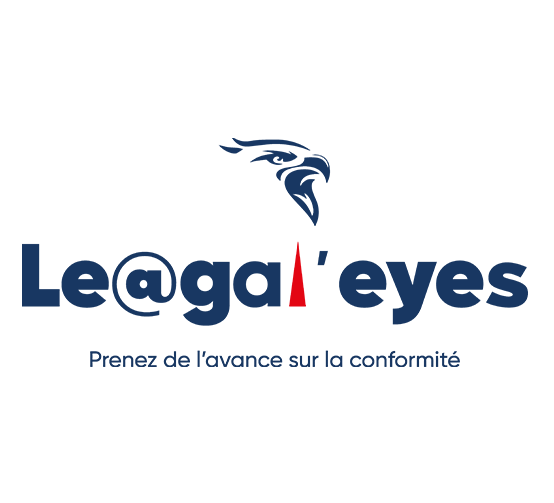The turmoil caused by the COVID 19 crisis has not spared salaried activity. At this time, business leaders had to take several measures. But what does the regulation provide?
Salaried activity, by definition, is carried on under an authority, which is generally embodied by the head of the enterprise either in his capacity as employer or in his capacity as holder of the power of the employer.
The latter has a general power concerning the operation of the enterprise and this power generally includes various prerogatives including the power to direct, the power to regulate and the power to sanction.
Each of these powers is specific but inseparable from the others. However, careful consideration will be given to the organisational or regulatory power of the entrepreneur.
By this power, the employer draws up the rules applicable in the undertaking. It allows the employer to adapt the legislation to his company and to specify the specific measures applicable within the company.
This regulatory power is exercised through various instruments, including rules of procedure and memoranda. The documents in question prescribe and prohibit staff.
As far as the rules of procedure are concerned, they are the subject of a regulation which is limited to the discipline, hygiene and safety necessary for the proper functioning of the company. This limitation of the object of the Rules of Procedure is intended to protect employees against unilateral rules which may impose restrictions on individual and collective freedoms. It is, however, important to note that the employer can enact in this internal regulation standards relating to health and safety...
The briefing note is a written document that is internal to an organization and that provides information on actions taken and the activity of the company.
In accordance with the law, it imposes on the head of the enterprise a general obligation of safety hygiene and prevention of occupational risks. It is thus empowered to take all necessary measures to promote the safety and health of workers[2] and to ensure their effectiveness.
This obligation is all the more important when the workplace is disrupted by a health crisis. The world of work has been particularly affected by the COVID-19 pandemic.
Businesses have had to face economic difficulties in almost every country in the world. It was essential to adapt social legislation to this new context in order to protect the interests of companies but also to regulate the vulnerability of employees.
In this process of adaptation, the Republic of Senegal has not remained on the margins.
Indeed, a start to a solution was made thanks to Order No. 001 2020 of April 08, 2020, which provides for measures to derogate from layoffs and technical unemployment during the Covid 19 pandemic.
This order provides information on two points, namely the question of dismissal and technical unemployment.
1. The dismissal
As a general rule, an undertaking experiencing economic difficulties is given the possibility of dismissal for economic reasons. Any individual or collective dismissal carried out by an employer and motivated by economic difficulties or internal reorganization constitutes a dismissal for economic reasons [3]
This unilateral right of termination granted to the employer and applied in this context of crisis would only increase the precariousness of the employee’s situation. In order to avoid the proliferation of redundancies, the measure taken limited the scope. With this measure, any dismissal not justified by gross negligence is considered null and void[4].
2. The question of technical unemployment.
Technical unemployment is regulated by Article L 65 of the Labour Code; it is a case of collective interruption of work for technical or economic reasons conjunctural or accidental.
Following Ordinance No. 001 2020 of 08 April 2020 setting up measures derogating from dismissal and technical unemployment during the Covid-1 pandemic, it is now strongly recommended to favour alternative measures to technical unemployment. This will include reducing working hours, rotating work, anticipating paid leave, redeploying staff, and part-time work. [5]
3. The question of the "health pass" in Senegalese companies.
We have seen that the head of the enterprise has a general obligation to ensure health, safety and the prevention of occupational hazards and that this prerogative derives from his power to organize work.
The question of the extent of these powers arises today in particular when it comes to health measures potentially contrary to the exercise of certain individual freedoms. Indeed, on the issue of vaccination, some employers have considered making it "compulsory" for their employees by taking measures to restrict access to their premises for unvaccinated employees.
The analysis of the information note issued by the National Electricity Company of Senegal, aimed on the one hand to require vaccination for authorizations of missions inside the country and abroad and on the other hand the annual leave of unvaccinated agents allows to bring an ounce of light to the issue.
In Senegalese positive law, there is currently no law or regulation that allows a business owner to impose Covid-19 vaccination on his employees. Any measure to impose it would be considered discriminatory and would infringe the rights of employees, in particular the right to work enshrined in the Constitution of Senegal. [6] This is the meaning of the Minister of Employment’s note on the matter.
On the other hand, it is important to note that legal mechanisms are provided by the Senegalese legislator so that the head of the company can ensure the protection of the health of its employees and avoid any discriminatory policy. This is the meaning of Decree No. 2006-1261 of 15 November 2006 laying down general health and safety measures in establishments of all kinds.
This decree lists in detail a set of technical procedures to ensure the performance of work in compliance with health and safety conditions.
In order to ensure that the work is carried out in the most professional manner possible, the employee must be able to evolve in a framework offering health and safety guarantees conducive to performance and it is the place to evoke the organizational power of the employer which has all the latitude to take measures to ensure safety and protect health physical and moral of its personnel.
The premises likely to accommodate employees must offer security guarantees, in particular as regards their resistance and stability, and the employer must ensure this.
The employer shall ensure that workplaces, machinery, equipment, substances and work processes under the employer’s control do not pose a risk to the safety of workers, it has control and oversight powers to ensure this.
The protection of the employee’s safety is at the heart of the requirements which weigh on the employer to such an extent that he is required to set up a service of occupational safety and a committee of occupational health and safety which will assist and advise him on the Guidelines for the safety and health of workers.
The employer must organise his undertaking in such a way that the employees can ensure their personal cleanliness and safety by, in particular, the provision of appropriate equipment where the personal protective measures or the very nature of the work performed on the require.
Change rooms and lockers that can accommodate employees and their personal belongings must be properly maintained on a regular basis.
Refectories and canteens made available to employees must be ventilated and ventilated and meals served must be served in strict compliance with food hygiene rules, it is also the employer’s responsibility to train them in this regard and to work on the application of these rules.
The employer has a whole range of prerogatives which emanate from his organisational power and which enable him to guarantee work to his employees in compliance with health and safety rules.
In addition, the Ministry of Labour, Social Dialogue and Institutional Relations has listed, as part of the strategy to prevent the spread of COVID-19 in the workplace, a number of measures to enable employers to stop the spread of the pandemic. These measures must also be correlated with provisions requiring other measures such as the wearing of masks in certain establishments.
These include, but are not limited to:
- Setting up clean facilities for regular hand washing with soap.
- The provision of disinfectant products, masks and tissues to workers.
- Regular cleaning of premises and work tools.
- The limitation of gatherings and movements in risk areas.
References
- Constitution of the Republic of Senegal.
- Law No 97-17 of 1 December 1997 on the Labour Code.
- Decree No. 2006-1256 of 15 November 2006 setting out employers' obligations with regard to safety at work.
- Decree No. 2006-1261 of 15 November 2006 laying down general health and safety measures in establishments of all kinds.
- Ordinance No. 001 2020 of 08 April 2020 setting up derogations from dismissal and technical unemployment during the Covid 19 pandemic period.
[1] Article L 100, Labour Code of Senegal.
[2] Article 6, Decree No. 2006-1256 of 15 November 2006 setting out employers' obligations with regard to safety at work.
[3] Article L60, Labour Code of Senegal.
[4] Article 1 of Ordinance No. 001 2020 of 08 April 2020 setting up measures derogating from dismissal and technical unemployment during the Covid 19 pandemic period.
[5] Article 2 of Ordinance No. 001 2020 of 08 April 2020 setting up measures derogating from dismissal and technical unemployment during the Covid 19 pandemic period.
[6] Article 8, Constitution of the Republic of Senegal.





